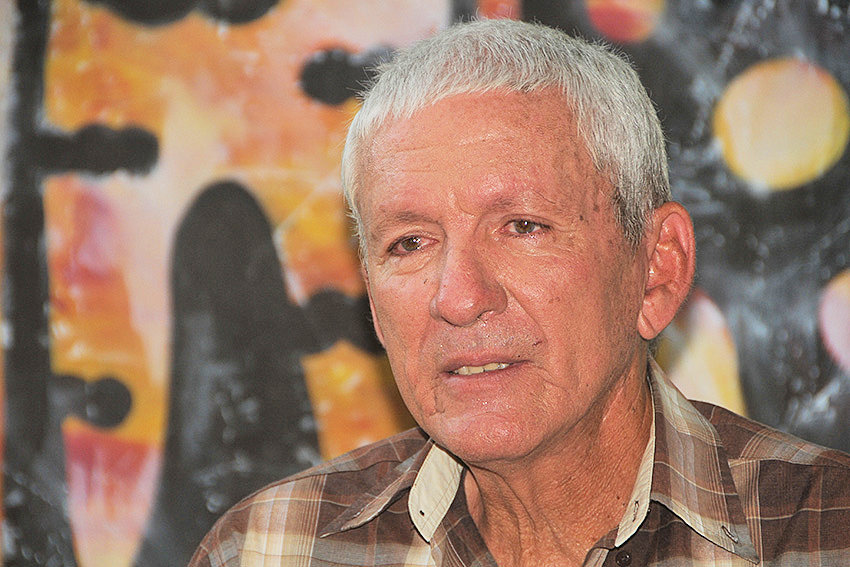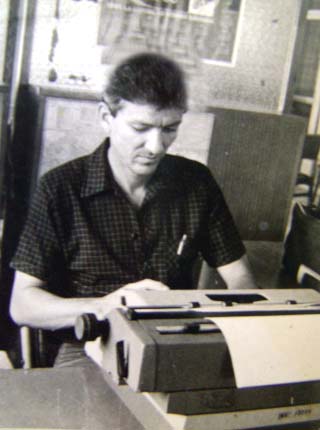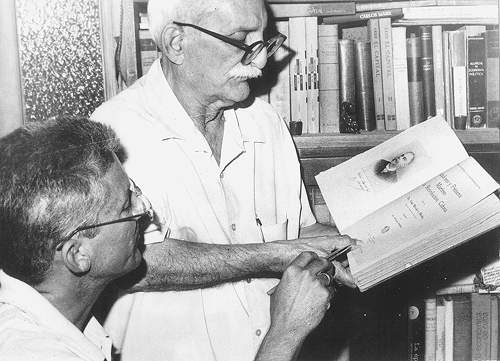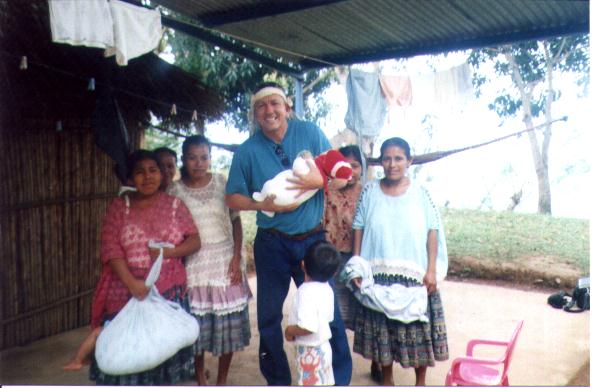
Juan Evangelio Morales Agüero was granted the Rosano Zamora Paadín Provincial Journalism Award for the Work of Life. His achievements are elevated with this recognition, precisely, when he adds nine lustrums of constant practice of the profession, to which he has contributed so much from this land.
He thought first of his mother, Paquita, while we all applauded when the news was announced. “My mother, who is in Heaven, surely in a very nice place, had a file with my work under the mattress; and every time someone came home, she stuffed them with those newspapers and it made me feel tremendously ashamed.
“He would say to those passing by: ‘Look how nice what Moralito wrote!’ (Because everyone in his native Manatí calls him that). My face fell with the neighbors, but she was all proud of her only son.
“Yes, my mother, may she be blessed, she was a very self-sacrificing woman, I know she is watching me right now and I dedicate the award to her, without a doubt.”
He said it with moist eyes and a broken voice, without giving time to the usual hugs and questions. It was something that he carried between her chest and back, to be shared soon, without blushing, with that certainty that only the most voracious love, the best conquest, can give.

Moralito had become “saturated,” that is the exact word he uses, with Journalism books. “They were published quite a bit in those years by the Pablo de la Torriente publisher.” He especially remembers one that he still has, authored by Víctor Joaquín Ortega, called Journalism Applied to Sport, a true gem in his hands.
Through them, he learned that the chronicle existed, which has a more refined, elegant language; and he became dazzled with studying the profession and its paths. During this whirlwind of knowledge, he was promoted to the not-inconsiderable category of “collaborator,” and then they began to pay him for some of the “little things” that he sent to the newspaper's enthusiastic group.
But the novice Juan was not given the leap to definitively head into the media field. He had tried three or four times but nothing. Obstacles of all caliber appeared on the road and cut his dream short. Until that day when Juan Emilio Batista, the essential one, called the house and left a message with the old woman.
“Tell Juan that now it seems so. The Universidad de Oriente will grant a place through a competitive examination and, although there are 12 applicants, he must not be afraid. Tell him to come here in the first transport mean from Manatí to Las Tunas, the test is early tomorrow."
Imagine yourself, at night and with that message. But we are telling you the story of a journalist who had an example of sacrifice and resilience in his mother. He remembers Paquita was not intimidated. And she made all the cousins, neighbors, and all the people she found walking around Manatí to find Moralito, surely dancing at some party, and do whatever was necessary so that he would be ready with the first ray of sun, and going, by train, to Las Tunas.
They didn't find him. The boy showed up at the house around 3:00 in the morning, full of joy after an evening of partying with his partners there in Santa Lucía, Punta Granada, he no longer remembers where he was.
But at those hours he didn't have any use for short mangoes, nor was a hangover an excuse. “How are you not going to go? If it's what you've always wanted,” his mother told him. And it was, or rather, almost that she put him on the 6:30 am train and sent him to sleep, without half measures.
 Morales together with the unforgettable Pedrito Verdecie. |
The boy from the batey arrived, as was logical, late for the test. And that was also the work of fortune because they told him that he would enter last and he had a little time to go to an aunt's house, take a good shower, and even a nap to alleviate his hangover. He arrived at the exam, fresh and determined, around 2:30 in the afternoon.
As he talked with the other applicants, he gained confidence. He was an inveterate devourer of news, debates, and current affairs, and he noticed the rest of the candidates were a little lazy in those matters. “That's something there,” he said to himself.
He won that game. And, months later, at 32 years of age, he was already on his way to the prestigious Universidad de Oriente to become a journalist thanks to Decree 91, which allowed him to enroll in the regular daytime course and keep 90 percent of his salary (around of 200.00 pesos), a whole million for the time.
But imagine, entering a classroom surrounded by much younger faces, recent graduates from the Vocational Pre-university Institutes of Exact Sciences (IPVCE) in the region, was a little intimidating. “I'm not going to last long here,” he thought that too. But he still clung to his love of reading, his desire to grow, and his overflowing passion for Journalism that, far from diminishing, grew.
In each word, one discovers his delight for those glorious years of Alma Mater and discoveries, and even a laugh escapes when he remembers the English teacher; her name was Bárbara and she lived up to her name because he was entrusted to that same saint when he saw her arrive at the classroom capable, as she was, of turning everything upside down with just the classic “good morning.”
“He called me 'the mute' because I stayed like that, I didn't speak anything. I got three points in the six semesters of the subject. The teacher went to the secretary's office once to review my notes because she said it was not possible for me not to talk about anything. Luckily, he was a good student, a four or five otherwise. I think that's why he spared my life."
For Juan, 26 is his home, and for those of us who work for the media today, he constitutes one of the most virtuous “pens” that we have had throughout our training. A fussy professional, a talkative man, a football lover, a deep follower of The Beatles. Some of his texts on the streets of this city have memorable anecdotes.
 Juan on a visit to an indigenous village during his internationalist mission in Guatemala. |
He talks about Segura, his eternal director, and how much he is proud of the generation of journalists of which he is a part. His daughters (Sofía and Beatriz) grew up in the hallways of the publication, the absolute owners of his checkbook and his biggest smiles. From there, among the daily ardor of the newspaper, he shaped letters that have made him essential in the media fabric of this country.
One day, the newspaper Juventud Rebelde (JR) opened its doors to him. And he, who never left his beloved 26, was grateful for the opportunity because "I have always loved to write a lot and JR has a profile that allows you to do that, one-page texts, large works, curious topics that escape diarism. I love that".
We owe Moralito the delicious book that is Postales Tunas (Postcards from Las Tunas), republished several times and always sold out in the country's bookstores; we also remember his time on an internationalist mission in Guatemala, and many of us recall his texts from those days because we looked for them, knowing that we would find valuable, intense and colloquial stories.
 Among the awards he has received is the Félix Elmusa Distinction. |
He thanked those who voted for him for this award as if he needed it to know that there is a before and after to the seal he put on the Las Tunas press. "Now that I am 68 years old, which I turned in December, it seemed to me that the time had come to hang up the gloves. But I always say that I was born a journalist and I will be one until my last days".
We know. That is why he continues to publish on his social networks, he is on local television with a history project, and he does not leave the pages of 26; the newspaper that one day had the joy of receiving him and is infinitely grateful for each page with his faithful signature.





